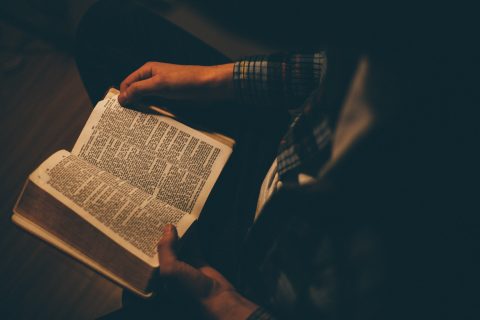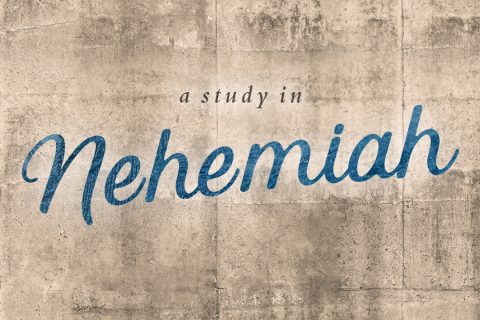The Days of Joiakim and Darius
By: Patty Nicholas-Boyte
Nehemiah 12:10-22 (NASB)
10 Jeshua fathered Joiakim, Joiakim fathered Eliashib, Eliashib fathered Joiada, 11 Joiada fathered Jonathan, and Jonathan fathered Jaddua.12 Now in the days of Joiakim, the priests, the heads of fathers’ households were: of Seraiah, Meraiah; of Jeremiah, Hananiah; 13 of Ezra, Meshullam; of Amariah, Jehohanan; 14 of [a]Malluchi, Jonathan; of Shebaniah, Joseph; 15 of Harim, Adna; of Meraioth, Helkai; 16 of Iddo, Zechariah; of Ginnethon, Meshullam; 17 of Abijah, Zichri; of Miniamin, of Moadiah, Piltai; 18 of Bilgah, Shammua; of Shemaiah, Jehonathan; 19 of Joiarib, Mattenai; of Jedaiah, Uzzi; 20 of Sallai, Kallai; of Amok, Eber; 21 of Hilkiah, Hashabiah; and of Jedaiah, Nethanel.22 As for the Levites, the heads of fathers’ households were registered in the days of Eliashib, Joiada, and Johanan, and Jaddua; so were the priests in the reign of Darius the Persian.
When I asked people what they think of the book of Nehemiah, everyone is quick to talk about Nehemiah’s great leadership skills, or the broken down walls and how the whole nation came together to rebuild the city in the midst of terrible opposition, which is true.
However, the latter chapters are full of pages and pages of names, names of those who re-populated the city, as well as those who lived in small towns, and of those who chose to live on their family lands as inheritance.
Chapter 12 of Nehemiah is another section that contains several lists of names. What makes passages such as this interesting is what we find if we look between the names.
Proving a person’s lineage was important to Nehemiah and the Jews, because only those who could prove their genealogy were allowed to perform service and or worship in the temple. Each man also needed to prove which tribe he was a part of in order to secure land for inheritance and to pass on his name to his children. This is also why you will find long sections of genealogy in other portions of scripture.
The first name listed today is Jeshua, which, in Hebrew means, “savior”. He was the father of Joiakim who was the high priest and his name means, “Yahweh has raised”. Both of these men’s names are references to a messiah who was to come. In a time where the people were trying to reestablish themselves in their homeland, and in their relationship with the Almighty God, these names have significance. God used these men to help Nehemiah and Ezra (listed above) to remind His chosen people what they looked forward to, and what the worship of God was supposed to look like as He commanded.
Next, we have a long list of the heads of households. In the days of Joiakim, these leaders carry almost the same importance as the priests. I love God’s order of things and it is a reminder for us today to respect those God has placed in leadership over us, and over our families.
All of these men mentioned served in the days of Darius the Persian King. This man was the same king who allowed Nehemiah to rebuild the walls and the city of Jerusalem, as well as reinstitute a sacrificial system of worship. God used an unbelieving Gentile to bring about a great revival. If God could use King Darius to do all of that, imagine what He can do in the middle of the great divide and upheaval we live in today.
Sometimes submitting to those in authority over us is difficult, especially when we do not agree, and yet sometimes God uses ungodly people such as King Darius to fulfill a greater purpose.

Hebrews 13:17 (NASB)
17 Obey your leaders and submit to them—for they keep watch over your souls as those who will give an account—so that they may do this with joy, not [groaning; for this would be unhelpful for you.
What can we learn from Nehemiah?
· Respect for those in authority over us. With wisdom from the Holy Spirit, we can submit in a way that honors others and is healthy for us.
· We all need help from God to fulfil our calling, including those in leadership. Help our heads of households and our leaders when we can.
· Even if God has not placed us in a role of authority, he knows our name and He is cares for us. We are never insignificant.
Galatians 6:2-5 (NASB)
2 Bear one another’s burdens, and thereby fulfill the law of Christ. 3 For if anyone thinks that he is something when he is nothing, he deceives himself. 4 But each one must examine his own work, and then he will have reason for boasting, but [a]to himself alone, and not to another. 5 For each one will bear his own load.
What questions can we ask ourselves that can affect change?
- Who are those in authority over me that I do not respect? What can I do to change my perspective?
- Is there anything in my attitude that I need to change toward heads of households, or in my own role in the home?
- Who are the leaders over me that I need to pray for, and how might my prayers change?
- In what way do I think God has forgotten me?
Click here for a schedule of seminar, concerts, and retreats at The Cove in beautiful Asheville, NC.
Are you a Christian church or non-profit ministry looking for a place to hold your conference, retreat or ministry event? Click here for more information on holding your event at The Cove.
Visit the Chatlos Memorial Chapel, Visitors Center, and Ruth’s Prayer Garden. Click here for directions and operating hours. Tours are free.

